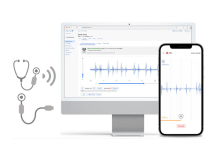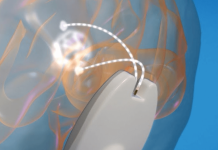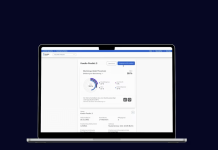Titan Medical, a medical device company focused on the development and commercialization of innovative surgical technologies for single access robotic-assisted surgery (RAS), has announced that it has surpassed 200 patents and patent applications. This important milestone demonstrates the company’s commitment to being an innovation leader in single access robotic-assisted surgery. This broad portfolio protects the company’s proprietary technology and supports its mission in driving better patient outcomes and offering cost benefits and improving hospital efficiency.
Recent patents issued to the company include U.S. Design Patent No. D940,736 for a robotic instrument graphical user interface (GUI), European Patent No. 2785267 for a novel patient cart, U.S. Patent No. 11,179,209 for autonomous control systems, and U.S. Patent Nos. 11,166,771 and 11,166,769, each directed at ergonomic aspects of robotic hand controllers. These issuances reflect the company’s originality and creativity in the areas of ergonomic and surgeon-friendly design and use.
“Titan’s ability to create and apply new technologies to the field of robotic-assisted surgery is impressive,” said Paul Cataford, Interim President and CEO of Titan. “Unconstrained by traditional designs and technologies, we have been able to advance directly into a novel single access RAS approach. Innovations in the design of the Enos™ surgeon workstation and patient cart have allowed a reduction in footprint. This means equipment can be easily maneuvered in and out of an operating room without requiring costly infrastructure changes. The anthropological focused design of the Enos workstation means surgeon effectiveness, fatigue and posture become key design elements. We believe these novel approaches and inventions competitively position the company and many of them may be of great value to potential collaborators and partners.”
Titan has already announced licenses of its patent portfolio to third parties and the company continues to evaluate options for geographical expansion and revenue generating opportunities. To address commonly asked questions with respect to third-party licensing, the company offers the following responses:
- Why has Titan entered into license agreements with third parties?
- Titan entered into license agreements with third parties to leverage its IP portfolio and knowledge to generate new capital funding opportunities. To date, these license agreements have resulted in upfront license fees.
- The company believes that licensing to third parties may also validate the value of Titan’s technology and its intellectual property position.
- The proceeds from these license agreements have provided capital to assist Titan in hiring and developing its in-house engineering (hardware and software) and regulatory teams, and expanding operations in Chapel Hill, North Carolina.
- Does Titan expect to receive any ongoing royalty payments from third party licenses?
- It depends. License fees may either take the form of an ongoing royalty or may be “pre-paid” meaning Titan will not receive any future royalty payments or additional revenues as payments are all received up-front. Titan continues to retain ownership of the licensed intellectual property and any related know-how and retains the rights to the same licensed intellectual property, know-how and technology necessary to commercialize and generate revenues from the Enos surgical system.
- What has Titan presently licensed?
- Approximately 1/3 of Titan’s patent portfolio, related generally to robotic-assisted instruments, endoscopic cameras, and related drive system technology has been licensed to third parties in pre-paid licensing deals. All of the technology covered by Titan’s complete patent portfolio may be used by Titan in its Enos surgical system.
- Is Titan able to license to other third parties, including jurisdictions outside of the U.S.?
- With respect to about 1/3 of Titan’s patent portfolio that has already been licensed, other than certain limited circumstances such as distribution arrangements, the company may not further license the technology, including in jurisdictions outside of the U.S.
- With respect to the rest of Titan’s patent portfolio, Titan is investigating future collaborations and/or license opportunities which may generate additional revenue for the company.
- What happens to third-party licenses in the event Titan is acquired?
- An acquirer of Titan would acquire Titan’s intellectual property and know-how, including the rights under third-party licenses.
- An acquirer would have the same rights as Titan, including the ability to commercialize Titan’s intellectual property for use with the Enos surgical system.
- Titan believes this type of arrangement is generally well understood and would not hinder Titan in pursuing strategic options.
- Do any licensees have rights or preference to any of Titan’s other technologies?
- No.
- Will licensees compete with Titan?
- Maybe. Titan is generally not made aware of third-party plans, including what markets or what indications/procedures may be targeted with the licensed technologies; however, Titan may potentially benefit with licensee use increasing awareness and educating stakeholders on the advantages of robotic-assisted surgery, benefiting the industry as whole.
- What is next for collaborations with third parties?
- While Titan intends to investigate future collaborations, the company does not yet know what, if any, future collaborations may include. That said, given the success of the recently completed collaboration despite the challenges of a pandemic and supply chain constraints, the company may consider other technology collaborations and/or distribution related collaborations, especially where foreign regulatory clearances may be advanced, such as CE Marking for Europe and other markets.




